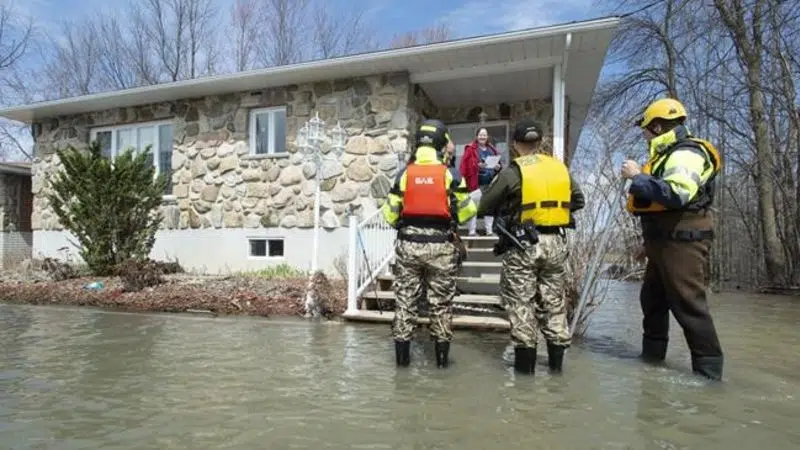
Cut off by water, Quebec island residents determined to stay in their homes
MONTREAL — Although the only bridge to Montreal is cut off by water and hip waders are the only way to navigate the streets of his town, Ile Mercier resident David Dostie has no intention of leaving the home where’s he’s lived for almost 60 years.
“I decided to work all my life for that house, I’m not going to leave — never,” Dostie said Tuesday. “If I leave the house, the government’s not going to pay (us). We have to keep the house, so we have to stay here.”
Dostie’s attitude is a common one on Ile Mercier, a tight-knit island community of about 50 homes just off Montreal’s West Island.


